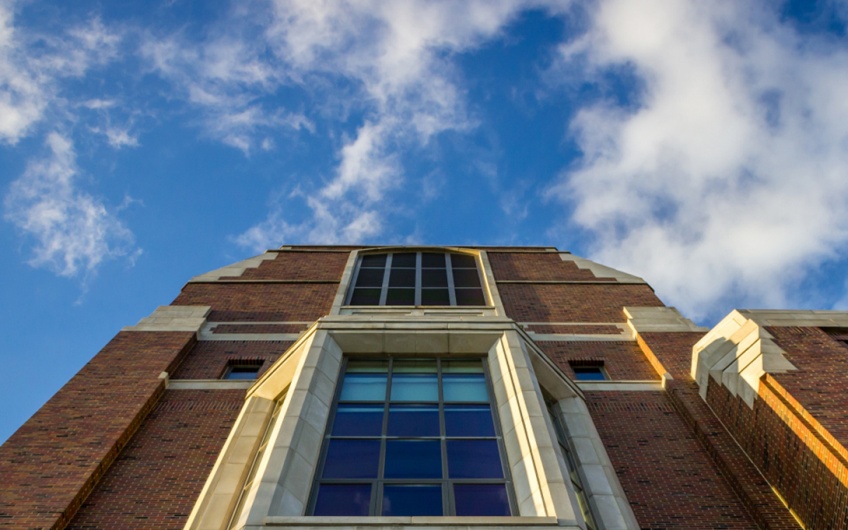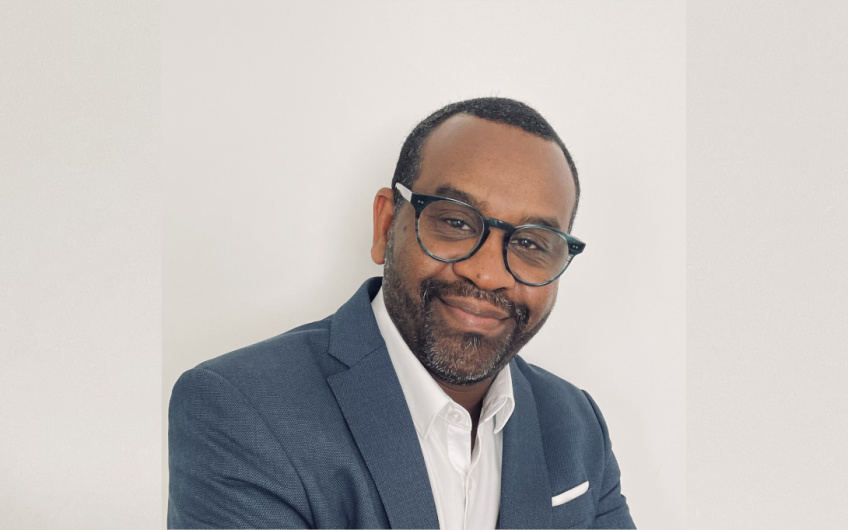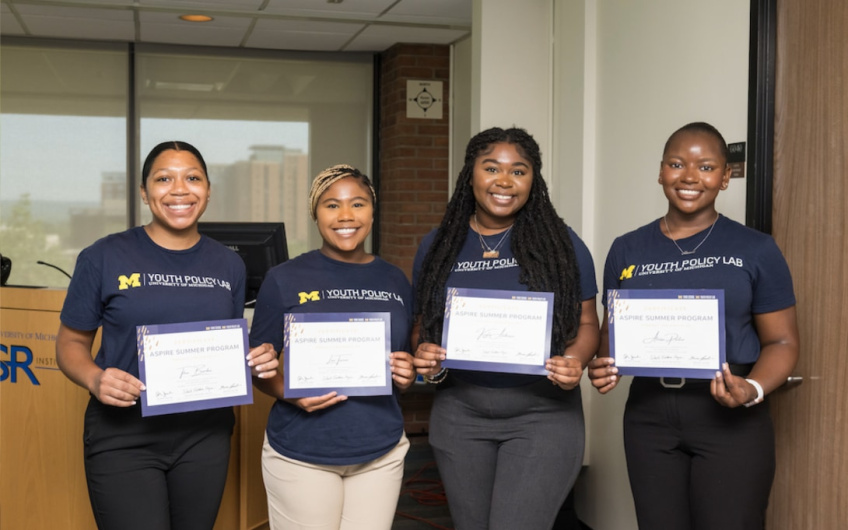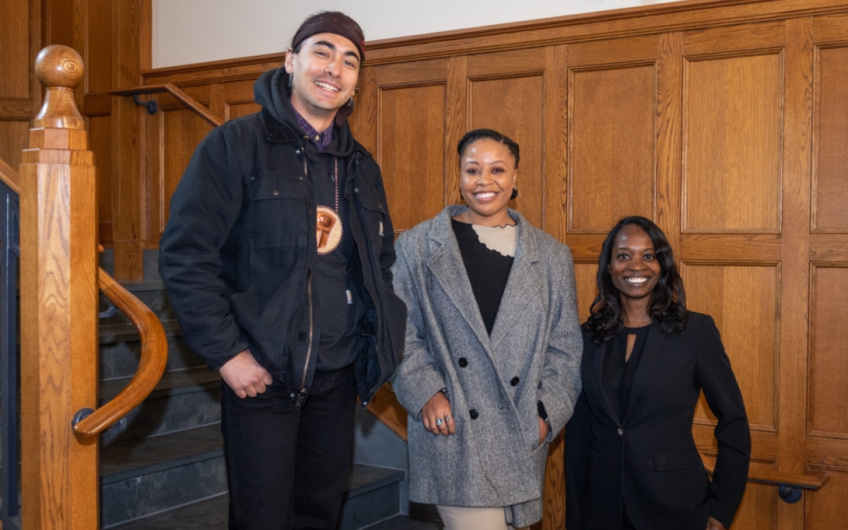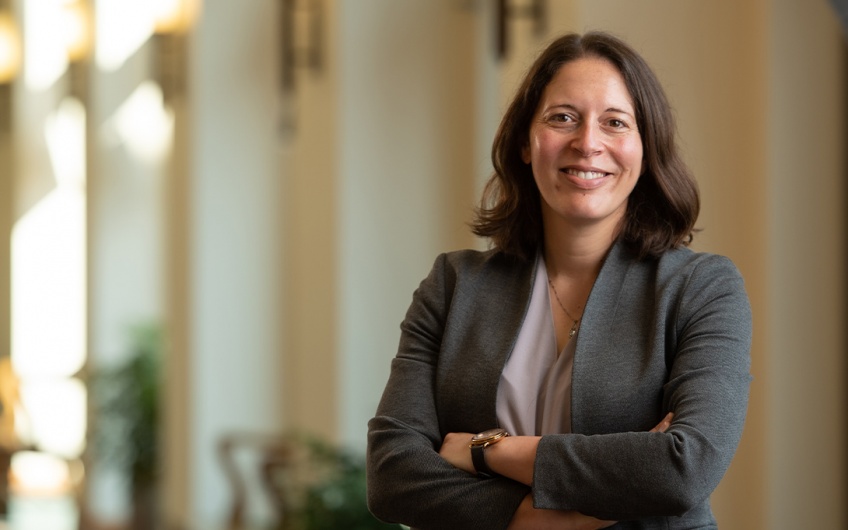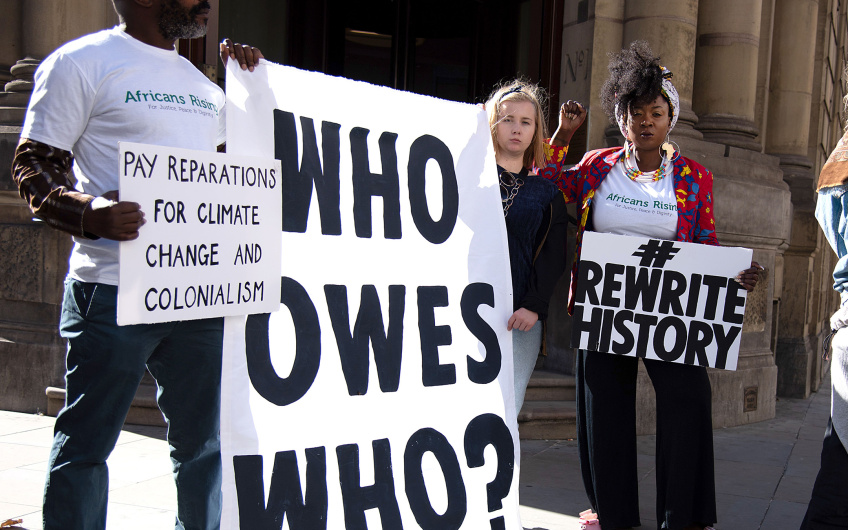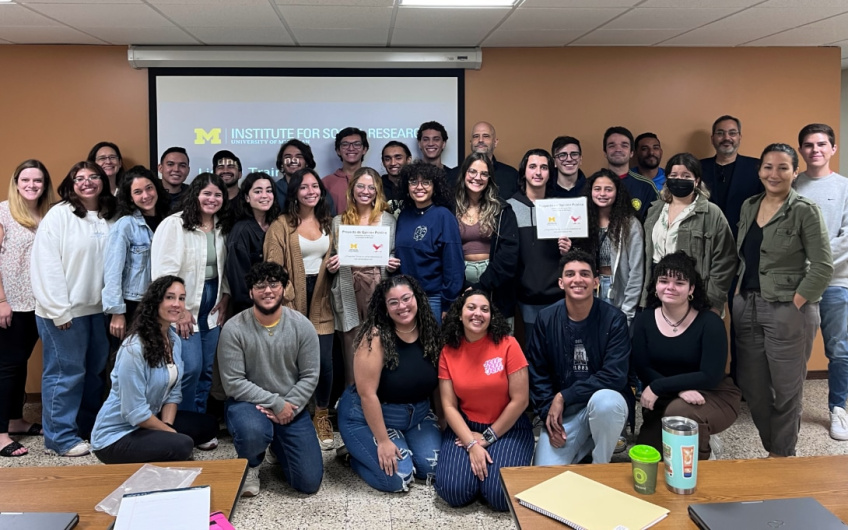Key results
Recognizing there is still much work to do, below are some recent examples of our key results from our initial diversity plan efforts. To see a more comprehensive list of accomplishments, please visit the archive, DEI 1.0 key results page.
A new infrastructure to support DEI and integrate it throughout all functions and services of the school.
We created and grew a new infrastructure to support the ongoing development, evaluation, accountability, and transparency of the Ford School’s DEI efforts. This includes the DEI Coalition, two DEI officers, and communication staff.
A special Ford School community event in fall 2022 reflected on and celebrated our shared commitment to DEI, and kickstarted the planning year for DEI 2.0.
Diversifying our community
- We’re engaged in a University-wide anti-racism faculty hiring initiative that will provide the opportunity for units across campus to hire more faculty working in this area. One (of two) successful proposals resulted in the Ford School hiring Yousif Hassan, who will be joining the faculty in January 2024.
- Student support continues to be a priority for our recruitment and retention efforts. We have increased our financial support to students for professional development, summer internships, and emergencies every year, for the last several years.
- We’ve made a concentrated effort to improve our staff hiring processes, to bring that work up to the level of success we’ve achieved in faculty hiring over the past several years. We reviewed staff hiring protocols to identify areas in our current recruitment and hiring processes where we can improve and better leverage outreach to connect with diverse populations. Staff were invited to attend information sessions on updated staff and hiring processes and are encouraged to complete the U-M Unconscious Bias Recruiting and Hiring Online Training module.
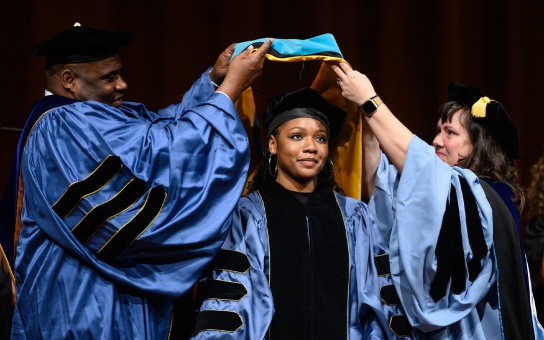
- We’ve grown the Public Policy and International Affairs program (PPIA), an important pipeline for our master's degrees and for outstanding careers in public policy more broadly. We celebrated its 40th year at the Ford School this past summer. We’ve supported the PPIA fellowship (formerly known as the Sloan or Woodrow Wilson fellowship) since its inception in 1981 and we’ve been one of just a handful of policy schools to host the 7-week educational initiative for undergraduate students every summer. Read more about the PPIA program.
Diversifying what and how we teach
- We updated the core courses in the MPP curriculum to have a greater focus on racial justice. We added three new courses that explicitly address important issues of structural racism and institutional discrimination: Racial Foundations of Public Policy; U.S./Latinx Policy Perspectives; and Sexuality & Public Policy.
- We updated our BA curriculum to require that all seniors take a course in program evaluation methods, which includes course content related to social inequality, structural racism, discrimination, and other DEI-related content.
- The Ford School continued to expand and leverage the anti-racism clearinghouse, which provides faculty with scholarly materials, multimedia content, and teaching guides to better foster anti-racism in the classroom. The Clearinghouse is full of resources teaching about structural racism, colonization, anti-racism, and public policy. In November 2022, the DEI Officer and DEI RAs offered confidential consultation services to support the teaching and learning needs of faculty who wished to incorporate anti-racism content into their courses.
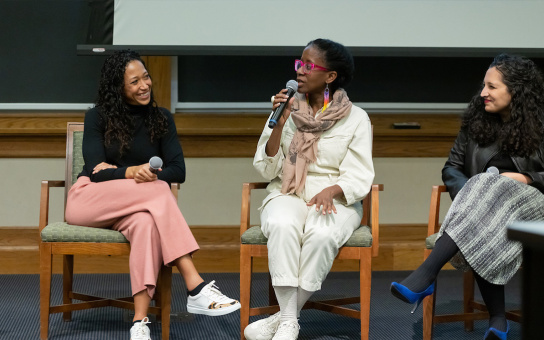
- With student input, we hosted a diverse, topical slate of speakers with attention to tensions in public policy, equity, and inclusion. Events featured topics grounded in an intersectional approach and focused on issues of social inequality, structural racism, and institutional discrimination. Highlights included the Center for Racial Justice’s Masterclass in Activism featuring the aunt of George Floyd, author and activist Angela Harrelson, and Dr. Ruha Benjamin’s discussion of her latest book, Viral Justice: How We Grow the World We Want.
- We expanded support and resources for Ford School student organizations whose programming advances DEI efforts. As a result, students advanced the conversation on decolonization through student-led programming and invited speakers to discuss topics on Decolonizing International Policy, racial disparities in Voting and Electoral Politics and Criminal Justice, and How Colonial Policies attempt to make Indigenous Kinship into American Family. They also attended the Association of American Colleges & Universities Conference on Diversity, Equity, and Student Success and the International Economic Development Program (IEDP)’s Indigenous cultural experience, which featured a chef who revives Indigenous agricultural techniques and decolonizes cuisines.
Promoting an equitable and inclusive climate
- We made some notable improvements to Weill Hall, including a renovated student lounge, gender inclusive restrooms, new study nooks, and a personal care space for nursing mothers. The updates make Weill Hall a more inclusive and welcoming space for our community.
- We established avenues for students to confidentially report issues of concern, including discrimination and unlawful bias through an anonymous feedback form that is sent to Ford School leadership.
- We placed special emphasis on our international students, providing customized support such as a free, non-credit summer program to help students learn about the U.S. political system.
Catalysts for racial justice
Diversifying ‘our research and policy engagement’
Our faculty demonstrate a strong commitment to research questions related to DEI, particularly with regard to issues of socioeconomic status, race, ethnicity, nationality, and gender. This includes studies of the effects of poverty and inequality on educational performance, the effects of immigration policy on outcomes for immigrants, and the ways in which those with limited resources engage in innovation. We make a concerted effort to lift up their findings and connect them with the public and policymakers.

